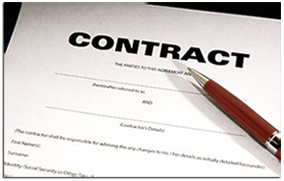Injuries Due to Car Accidents
Car accidents are a major cause of injuries in the United States. The National Highway Traffic Safety Administration (NHTSA) estimates that over 2 million people were injured in motor vehicle crashes in 2020.
The severity of injuries can vary depending on the type of accident, the speed of the vehicles involved, and the location of the impact. Some common injuries include:
Types of Injuries
Car accidents can cause various injuries, ranging from minor bruises to catastrophic spinal cord injuries. Here are some common types of injuries associated with car accidents:
Head Injuries
Head injuries are among the most serious car accident injuries and can range from concussions to traumatic brain injuries (TBIs). TBIs can cause a variety of symptoms, including confusion, disorientation, memory loss, and impaired cognitive functioning. Some head injuries may require immediate medical attention to prevent permanent damage.
Neck and Back Injuries
Car accidents can cause severe neck and back injuries due to the sudden and forceful movements that occur during an impact. These injuries often involve muscle strains, sprains, herniated discs, and broken bones. Neck and back injuries can be particularly debilitating, causing chronic pain and limited mobility.
Chest and Abdominal Injuries
Chest and abdominal injuries can be caused by direct impact with the steering wheel, dashboard, or other objects in the vehicle. These injuries can range from bruises and broken ribs to more severe organ damage, such as punctured lungs, liver lacerations, or internal bleeding. Chest and abdominal injuries can be life-threatening if not treated promptly.
Extremity Injuries
Car accidents often result in extremity injuries, such as broken bones, dislocations, and sprains. These injuries can occur when a person is thrown about the vehicle or when they come into contact with hard surfaces. Extremity injuries can range from minor cuts and bruises to more complex fractures requiring surgery.
Psychological Injuries
In addition to physical injuries, car accidents can also cause psychological trauma. Victims may experience post-traumatic stress disorder (PTSD), anxiety, depression, or other mental health issues. These psychological injuries can have a significant impact on a person’s life, affecting their relationships, work, and overall well-being.
Injuries Due to Car Accidents: A Comprehensive Guide
Car accidents can result in a wide range of injuries, from minor bumps and bruises to severe, life-altering conditions. Understanding the potential injuries associated with car crashes is crucial for taking preventative measures and seeking appropriate medical attention. This article provides a comprehensive overview of common car accident injuries, focusing on their symptoms, treatment options, and long-term effects.
Whiplash
Whiplash is a neck injury that occurs when the head is suddenly jerked back and forth, often in a rear-end collision. The rapid movement can strain the muscles, ligaments, and nerves in the neck, leading to a variety of symptoms such as pain, stiffness, headaches, and dizziness. Most whiplash injuries resolve within a few weeks with rest and conservative treatment, but some cases can develop into chronic conditions, causing persistent pain and reduced mobility.
Other Common Car Accident Injuries
In addition to whiplash, car accidents can cause a range of other injuries, including:
-
Head and Facial Injuries: These include concussions, lacerations, skull fractures, and dental injuries. They can result from direct impact or from flying objects inside the vehicle.
-
Chest Injuries: These involve injuries to the ribs, lungs, or heart. They can be caused by the impact of the steering wheel or seat belt, or from being thrown against the dashboard.
-
Abdominal Injuries: These include organ damage, internal bleeding, and broken bones in the abdomen. They often result from a side-impact collision or a high-speed crash.
-
Lower Extremity Injuries: These injuries involve the legs, ankles, and feet. They can be caused by being trapped under the wreckage or from the force of the impact.
-
Psychological Injuries: Car accidents can also lead to psychological trauma, including post-traumatic stress disorder (PTSD), depression, and anxiety. These conditions can significantly impact a person’s quality of life and require professional treatment.
Treatment and Recovery
The treatment for car accident injuries depends on the severity of the injury. However, most injuries will require some form of medical attention, ranging from ice packs and pain medication to surgery. Recovery time varies depending on the injury, but it’s important to follow doctor’s orders and adhere to rehabilitation plans to maximize recovery and prevent complications.
Conclusion
Car accidents can have serious consequences, resulting in a variety of injuries. By understanding the potential injuries and taking appropriate precautions, such as wearing a seatbelt and driving defensively, you can reduce your risk of experiencing these devastating effects. If you’ve been involved in a car accident, don’t hesitate to seek medical attention to assess your injuries and begin the healing process.
Injuries Due to Car Accidents
Car accidents can cause a wide range of injuries, from minor scrapes and bruises to life-altering disabilities and even death. The severity of an injury depends on a number of factors, including the speed of the vehicles involved, the type of collision, and the part of the body that was struck. Some of the most common injuries due to car accidents include head injuries, neck injuries, back injuries, chest injuries, and abdominal injuries.
Head Injuries
Head injuries are among the most serious injuries that can result from a car accident. They can range in severity from mild concussions to life-threatening traumatic brain injuries. Concussions are a temporary loss of consciousness caused by a blow to the head. Symptoms of a concussion can include headache, nausea, vomiting, dizziness, and confusion. More severe head injuries can cause bleeding in the brain, skull fractures, and permanent brain damage.
Neck Injuries
Neck injuries are another common type of injury that can result from a car accident. These injuries can range in severity from minor sprains and strains to serious fractures and dislocations. Symptoms of a neck injury can include pain, stiffness, swelling, and difficulty moving the head. More severe neck injuries can cause paralysis or even death.
Back Injuries
Back injuries are also common in car accidents. These injuries can range in severity from minor strains and sprains to serious fractures and dislocations. Symptoms of a back injury can include pain, stiffness, swelling, and difficulty moving the back. More severe back injuries can cause paralysis or even death.
Chest Injuries
Chest injuries are another type of injury that can result from a car accident. These injuries can range in severity from minor bruises and cuts to serious fractures and internal injuries. Symptoms of a chest injury can include pain, shortness of breath, and difficulty breathing. More severe chest injuries can cause internal bleeding or even death.
Abdominal Injuries
Abdominal injuries are another type of injury that can result from a car accident. These injuries can range in severity from minor bruises and cuts to serious internal injuries. Symptoms of an abdominal injury can include pain, swelling, and difficulty breathing. More severe abdominal injuries can cause internal bleeding or even death.
Injuries Due to Car Accidents
Car accidents are a leading cause of injuries in the United States, resulting in a wide range of physical, emotional, and financial hardships. Understanding the common types of injuries associated with car accidents can help you take steps to protect yourself and your loved ones.
Broken Bones
Broken bones are another common injury in car accidents, and they can occur anywhere in the body, from the head to the toes. The severity of the break will depend on the force of the impact and the location of the break. Some common types of broken bones include skull fractures, rib fractures, arm fractures, and leg fractures.
Head and Neck Injuries
Head and neck injuries are some of the most serious and life-threatening injuries that can occur in a car accident. These injuries can range from concussions to traumatic brain injuries. Concussions are caused by a blow to the head that disrupts brain function, and they can cause symptoms such as headache, nausea, vomiting, and confusion. Traumatic brain injuries are more severe and can cause permanent damage to the brain, leading to problems with memory, thinking, and motor skills.
Spinal Cord Injuries
Spinal cord injuries are another serious type of injury that can occur in a car accident. These injuries are caused by damage to the spinal cord, which is the main pathway for communication between the brain and the rest of the body. Spinal cord injuries can result in paralysis, loss of sensation, and other disabilities.
Internal Injuries
Internal injuries are often hidden, making them more difficult to diagnose and treat. These injuries can include damage to the organs, such as the heart, lungs, or liver. Internal injuries can also cause bleeding, which can lead to shock and even death. Seek medical attention immediately if you experience any severe pain or discomfort after a car accident, as it could be a sign of internal injuries.
Emotional Trauma
In addition to physical injuries, car accidents can also lead to emotional trauma. This can include symptoms such as anxiety, depression, and post-traumatic stress disorder (PTSD). Emotional trauma can have a significant impact on your quality of life, and it is important to seek help if you are experiencing these symptoms.
Injuries Due to Car Accidents: A Comprehensive Guide
Car accidents can inflict a wide range of injuries, from minor cuts and bruises to life-threatening trauma. Understanding the potential injuries can help you prepare for the aftermath of a crash and seek appropriate medical attention. In this article, we’ll delve into the different types of injuries you may sustain in a car accident, with a specific focus on chest injuries.
Chest Injuries
Chest injuries can range from minor bruises to severe internal bleeding. The impact of a car accident can compress the chest, causing injuries to the ribs, lungs, heart, and other vital organs. Some common types of chest injuries include:
- Rib fractures: Broken or cracked ribs can cause severe pain and difficulty breathing.
- Pneumothorax: A collapsed lung occurs when air or fluid enters the space between the lung and the chest wall.
- Hemothorax: Blood accumulates in the space between the lung and the chest wall, compressing the lung.
- Cardiac contusion: A bruise to the heart can lead to irregular heartbeats or other complications.
- Blunt cardiac injury: This type of injury can occur when the heart is suddenly compressed, potentially causing severe damage.
Chest injuries can be extremely serious, so it’s essential to seek medical attention immediately if you experience any chest pain, shortness of breath, or other symptoms after a car accident. Early diagnosis and treatment can significantly improve your chances of a full recovery.
Injuries Due to Car Accidents
Car accidents are a leading cause of injuries in the United States. According to the National Highway Traffic Safety Administration (NHTSA), over 400,000 people were injured in car accidents in 2020. These injuries can range from minor cuts and bruises to serious injuries that can result in permanent disability or even death.
Physical Injuries
The most common physical injuries sustained in car accidents include broken bones, sprains, strains, cuts, and bruises. These injuries can occur when the occupants of the vehicle are thrown about the inside of the car or when they collide with the steering wheel, dashboard, or other objects in the vehicle.
Head Injuries
Head injuries are a particular concern in car accidents. Even a minor bump to the head can cause a concussion, which can lead to a variety of symptoms, including headaches, dizziness, nausea, and vomiting. More serious head injuries can cause brain damage, which can result in permanent cognitive or physical disabilities.
Neck Injuries
Neck injuries are also common in car accidents. These injuries can range from whiplash to more serious injuries, such as a broken neck. Whiplash is a sprain or strain of the muscles and ligaments in the neck. It can cause pain, stiffness, and headaches.
Back Injuries
Back injuries are another common type of injury sustained in car accidents. These injuries can range from minor strains and sprains to more serious injuries, such as a herniated disk. A herniated disk occurs when the soft, inner part of the disk pushes through the tough outer layer. This can cause pain, numbness, and weakness in the back and legs.
Chest Injuries
Chest injuries are also possible in car accidents. These injuries can range from minor bruises to more serious injuries, such as a broken rib or a collapsed lung. A collapsed lung occurs when air leaks out of the lung and into the chest cavity. This can cause difficulty breathing and chest pain.
Abdominal Injuries
Abdominal injuries are also possible in car accidents. These injuries can range from minor bruises to more serious injuries, such as a ruptured spleen or a lacerated liver. A ruptured spleen can cause internal bleeding, which can be life-threatening. A lacerated liver can also cause internal bleeding and can lead to infection.
Additional Complications
In addition to the physical injuries, car accidents can also lead to emotional and psychological trauma. This trauma can manifest in a variety of ways, including anxiety, depression, post-traumatic stress disorder (PTSD), and sleep disturbances. Car accidents can also lead to financial hardship, as victims may lose wages or have to pay for medical expenses.





Leave a Reply